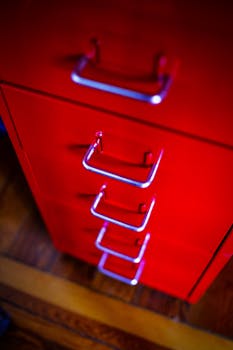NTFS vs exFAT vs ext4: Which File System Should You Use?
9/25/2025 · Storage · 6 min

TL;DR
- NTFS is the default for Windows: great features, wide tool support, best for internal Windows drives and large external drives used mostly with Windows.
- exFAT is the best cross-platform choice for large external drives and flash media when you need large file and partition sizes without permissions or journaling.
- ext4 is the standard for Linux; it offers journaling, strong performance and good recovery tools but limited native support on Windows and macOS.
What these file systems actually do
- File systems organize files and directories, track free space, and store metadata like permissions and timestamps.
- Key differences: journaling, permissions, maximum file size, compatibility and how they handle crashes and corruption.
Compatibility
- NTFS: Read/write on Windows. macOS can read NTFS natively but needs third-party drivers for full write access. Most Linux distros can read and write NTFS via ntfs-3g or the kernel driver, but performance varies.
- exFAT: Native read/write on modern Windows and macOS. Most Linux distros support exFAT through kernel support or fuse packages. Ideal for cross-platform external storage.
- ext4: Native on Linux. macOS and Windows do not support ext4 out of the box; third-party drivers exist but can be unstable or read-only.
Limits and performance
- NTFS: Max file size and volume size are very large in practice. Includes journaling and advanced metadata which can slow some flash drives but improves reliability.
- exFAT: Designed for flash and removable media; supports very large files and volumes with low overhead but lacks journaling and POSIX permissions.
- ext4: Fast and robust for Linux workloads, supports journaling and features like delayed allocation that improve performance. Tuneable for SSDs and large volumes.
Safety and recovery
- Journaling in NTFS and ext4 reduces corruption risk after a crash. exFAT has no journaling and is more vulnerable to corruption on unexpected removal.
- For recoverability, ext4 and NTFS have mature tools for fsck and file recovery. exFAT recovery options exist but are more limited.
When to choose each
- Choose NTFS if:
- Your primary environment is Windows and you need permissions, compression, encryption and reliable journaling.
- The drive will stay mostly with Windows machines.
- Choose exFAT if:
- You need plug and play compatibility between Windows and macOS without file size limits.
- You use SD cards, USB flash drives or external HDD/SSD for media and backups across platforms.
- Choose ext4 if:
- You run Linux as your main OS or are setting up Linux servers and need stable journaling, performance and native tools.
- You do not need frequent cross-platform access from Windows or macOS.
Practical tips
- For external drives shared between Windows and macOS use exFAT.
- For dual-boot with Linux and Windows consider a small exFAT or FAT32 data partition for file exchange and NTFS or ext4 for system drives.
- If you need encryption and compatibility, consider using container formats like VeraCrypt or file-based encryption tools rather than relying on filesystem features across OSes.
Quick checklist before formatting
- Back up data first.
- Pick exFAT for cross-platform external storage.
- Pick NTFS for Windows system drives and features like ACLs and compression.
- Pick ext4 for Linux system drives and servers.
- Consider performance tuning flags for SSDs and use TRIM where supported.
Bottom line
Match the file system to your primary OS and workflow. exFAT wins for simple cross-platform external storage. NTFS is the best choice for Windows first workflows that need advanced filesystem features. ext4 is the right option for Linux systems that need reliability and performance. If you need both strong compatibility and features, separate partitions or encrypted containers give the most flexible solution.
Found this helpful? Check our curated picks on the home page.